Guitarist Bill Kirchen is known as the “Titan of the Telecaster” for good reason. Exhibit A: Check out his smokin’ signature tune “Hot Rod Lincoln”, which became a Top Ten hit for country rock hippies Commander Cody and the Lost Planet Airmen in 1972, a couple of years after Kirchen and his bandmates migrated from Ann Arbor, Michigan to the Bay Area.
The Airmen flew their own ways in 1976, and since then Kirchen has recorded and performed in various line-ups and styles, from country to rockabilly to honky-tonk to the catch-all style he calls “dieselbilly”.
This interview was for a preview article for noozhawk.com for Kirchen’s 7/29/17 show at the Lobero Theatre in Santa Barbara, California, along with Texas country singer-songwriter Jimmie Dale Gilmore. It was done by phone on 7/21/17. (Valerie Fremin photo)
Jeff Moehlis: What can people look forward to at the upcoming show?
Bill Kirchen: I haven’t played in Santa Barbara in a number of years. The last time I played probably was at SOhO, or maybe there was an outdoor festival I played at also. Of course, it’s one of the most wonderful towns in the world. I used to live in California – I was in the Bay Area, but there’s still a lot of people I know in that neck of the woods. I’m delighted to do it.
Plus, it’ll be right in the middle of my little tour with Jimmie Dale Gilmore, and that’s been a delightful thing to experience, working with Jimmie Dale. There’s a lot to look forward to. Plus, [Sings Like Hell mastermind] Peggie [Jones] seems like a great person. I just got to know her recently. So the whole thing’s lining up great. And we’ve got Colin Gilmore, Jimmie’s son, on the show. What’s not to like?
JM: Sounds great! How long have you known Jimmie Dale Gilmore?
BK: I know that he left Lubbock and came out to California the very same time I did, in like ’68 or ’69. I came out from Ann Arbor and he came out from Lubbock. I brought the Commander Cody band out to California then. He remembers seeing us at a club in Berkeley in about ’69. Whether we hung out then, I don’t know.
I got to know him later on. Originally I probably first sat in with the band, I would think, in the early ’80’s, and I’d see him off and on. And then in only the last five years we’ve really become friends. We see each other on a regular basis. We’re neighbors now just outside of Austin, Texas, and we’ve ended up working together. We ended up both being the co-host of a gig [“Mystery Monday at El Marcado”] in town that a woman named Sarah Elizabeth Campbell did. She passed away in December of 2013, and both Jimmie and I worked to fill in as co-host there, and now I’m the permanent co-host. So we see each other a lot through that. There’s a lot of contact now, and it’s delightful. I remember playing his birthday party in Austin some number of years ago, at least 20 years ago. It’s been a while.
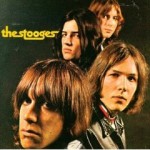
JM: You mentioned Ann Arbor, and when I think of music and Ann Arbor I think of Iggy Pop and The Stooges. Did you interact at all with those guys back in the day?
BK: Oh yeah, I know Iggy, I know Jim. I went to high school with him. We both graduated from the same class in high school in 1965. I don’t really see him anymore. The last time I saw him, I took my daughter to see him in D.C., and had a nice chat with him. That was a number of years ago. It wasn’t a Stooges show. And I knew Ron and Scott Asheton in high school. We would always chat and what-not.
I was actually at the very first Stooges show [on October 31, 1967], so I know that side of things. Of course Jim / Iggy comes out of the blues scene in Ann Arbor. He had a band called The Iguanas, and then he joined a band called The Prime Movers. There was a lot of interest in the blues in Ann Arbor, especially Chicago blues only 4 or 5 hours away. There’s a lot of that in what Iggy did. He took the energy, drive, and swagger of the blues – of course he’s a tremendous performer – and made a completely unique thing out of it.
Ann Arbor also had a wonderful folk scene, that got me started playing banjo, seeing people like Bill Monroe. I saw Mike Bloomfield come to town right before he went and did Newport. I saw him later on in Newport, when he played with Dylan in ’65. So Ann Arbor was a real crossroads of a lot of different music. John Sinclair up in Detroit with the [Detroit] Artist’s Workshop brought free jazz and jazz and blues to Ann Arbor. It was a great, great, great musical scence.
JM: I’m actually seeing Iggy on Sunday at a festival in Los Angeles [FYF 2017]. That’ll probably have a much bigger crowd than the first Stooges show [both laugh].
BK: I think there was four of us. For some reason I got there late. By the time I got there he was shoving a microphone in and out of a vacuum cleaner on the floor. I remember thinking, “Oh no, it’s gone all horribly wrong!” I saw him maybe no more than 6 months later, and they were just fabulous, just off the blocks, a fantastic show.
Commander Cody did a few shows with them. I remember one in San Francisco with us and Iggy and Alice Cooper, early on in everybody’s career. He’s wonderful.
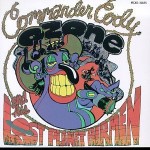
JM: Of course you went in a different direction from The Stooges with Commander Cody and His Lost Planet Airmen. I want to ask you about the band’s first album, Lost in the Ozone. What are your reflections on that particular album?
BK: The neat thing about that record was it was composed of stuff we’d learned just because we loved it. We weren’t premeditated in the slightest. Everybody brought to the table something they had written or had learned, and we also had time to really settle into it. I like the album a lot in that respect. There were ways in which we were not slicked up very much yet, but that’s kind of the charm of it, too.
I think it yielded the only hit we ever had, “Hot Rod Lincoln”, and that says something. I still enjoy going back and hearing it. It sounds kind of youthful and charming to me when I listen to it. We were earnest, but that was a good band. It gives me warm fuzzy feelings to hear that stuff.
Good songs, too. A lot of great songs. “Wine Do Yer Stuff” and “Seeds and Stems (Again)” – I didn’t write either one of those, but those are fine songs that stand the test of time. I sing them today, you know. They’re good tunes. I think “hijack one of those big jet planes” is on there [JM: the song “Back to Tennessee”], and “Hot Rod Lincoln” of course, and I did “Home in My Hand”. Yeah, a good record.
JM: Was the record company supportive of what you guys were doing? I read that they wanted you to soften the edges a little bit.
BK: You know, it’s hard for me to say. I was fairly insulated from that by my own choice back then. I mean, I tried to influence what was going on in the band, and what we were presenting. But what happened with that, I really don’t remember.
I know that we were already established as what was then an underground act, you know FM radio and touring that whole circuit, and their attempts to market a band with a Top Ten hit, which we had, sort of never really quite gelled. We didn’t function well in that world, and we were already established as a hippie band singing about pot or whatever. But, you know, it was what it was, and I don’t look back and think, “Oh man, they really messed this up.” I don’t think that at all. We were who we were, and many of our wounds were self-inflicted. We had a good run.
JM: “Hot Rod Lincoln” has, I think, become your signature tune now.
BK: I would say so.
JM: I know it’s a cover. How did that song come to your attention, and get into the catalog of Commander Cody?
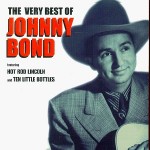
BK: I found an album called Johnny Bond’s Greatest Hits, I think. It was a cheapie on Capitol, probably – I can’t remember the label anymore. It had him doing “Hot Rod Lincoln”, which was a cover song we didn’t know. Nor did we know it was an answer song to a song called “Hot Rod Race”, which we had no idea about. So the words made no sense to us. It starts off, “You all heard the story of the hot rod race”. Well, in our case it was like, “No.” We didn’t even recognize it as such.
So George [Frayne] changed the words all around. I tried to learn the lick as best as I could. Now I realize when I go back and hear it, it’s significantly different. I kind of like mine better now, so I always tell people it was originality born out of incompetence. We didn’t even get the chords right – it’s I-IV-I-V on the record, and we played it I-IV-V. But we did the best we could, and we actually carved something interesting out of it. That song – I love it, and I still do it. I made my own version of it almost by accident, doing the medley of guitar licks in the middle of it. So definitely that song should claim me as a dependent on its income tax return, I’d say. [JM laughs] I’ve had a good run with that tune.
I learned it because as a guitar player I loved that lick. I’d been trying to play Doc Watson stuff on acoustic, and I really hadn’t gotten too far on electric. But that almost required Doc Watson type flatpicking skills, which I had just started to gain by then. That’s why I was able to play it, and that’s why I liked it. So we got George to sing it, because it was a talking thing, and he was great at that stuff. I mean, I don’t remember him doing anything else like that before then, but we got him to do it and it turned out to be a good idea.
JM: Are there any crazy stories from the Commander Cody days that you’re willing to share?
BK: There’s a lot of crazy stories, but I really can’t even think of one in particular now. I mean, we were overserved back then, which I’m sure sort of put a ceiling on what we were able to accomplish in the “music business”. But that’s just the way it was back then.
I’d have to say this – I don’t think we were as good at being bad as we might have thought we were at the time. I go back and read stories of some of the country guys we were emulating. I think some of those guys got way higher than we did. We did what we did. I’m not trying to conceal anything, but I can’t think of any scandalous, fantastic, epic things that we did.
JM: If you remember any, then you can tell us at the show.
BK: Yeah, I’ll try to bring out a couple for the moment [laughs].
JM: You’ve done a lot of music since Commander Cody. How has your approach to solo work been different from how you approached things when you were with Commander Cody?
BK: That’s a good question. It’s just evolved. I mean, it’s evolved as my band size has changed. I started with an 8-piece band and with several lead singers, and I guess my next step was a 7-piece western swing band where I did a bigger percentage of the singing. I probably sang only 3 songs a set, 25 percent of the tunes in that band. I was charged with doing the weeper ballads like “Seeds and Stems (Again)” and the truck driving songs like “Looking at the World Through a Windshield” and “Semi Truck” in the original band. Then with my band The Moonlighters, I sang a little bit more in a slightly smaller band.
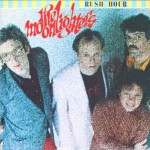
Then The Moonlighters turned into a 4-piece kind of pop band, and we made a record with Nick Lowe producing in the early ’80’s. And, of course, that’s a whole different job. Then, my next move in the mid- and late-80’s when I started to travel as a trio. And that was a whole education in how to do that, how to produce the right kind of sound in that format. It required really being diligent. I used to sit there, I remember, with Cody and play some fills, maybe smoke a cigarette during one verse, stuff like that. You can’t do that anymore [laughs]. So that changed. My guitar playing had to step up quite a bit in terms of consistency in the trio.
Now, doing solo, I’ve taken a lot of what I learned playing in a trio and tried to see what works and what doesn’t – when do I have to keep the rhythm, when can I play some licks, and how to make soloing and filling and verses more rhythmic so I don’t lose people. That’s a whole different challenge now. But it’s been a progression, and one I’ve enjoyed very much. I just played a solo show last night, and I was just thinking about how it’s its own challenge, and when it works it’s very rewarding. But I do play solo electric.
So this gig with Jimmie Dale Gilmore is the best of both worlds in a way. I do what I do solo, but he’ll play rhythm with me, and then I get to play as his accompanist and harmony singer, which is a delightful thing. I love Jimmie dearly, and he’s a wonderful, wonderful singer and songwriter, and in person and personality. It’s a lot of fun.
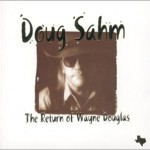
JM: One thing I noticed looking at your musical biography is that you played on Doug Sahm’s last album. What was that experience like? It seems like he was a bit of a character.
BK: It was wonderful. I got to know him late in his career and life, in the mid-90’s. I had been very aware of him, but didn’t really follow him or look closely at what he’d been up to, except for his hits. Doug was just a great, bigger-than-life character. Doug was really happy to be Doug Sahm, and I think you or I would be, too, if we were Doug Sahm. He had a tremendous enthusiasm for everything he did. He knew a bunch of different kinds of music – R&B, swamp pop, old blood-and-guts country. And he took that swamp pop and made it his own with things like “She’s About a Mover” and “Mendocino” in the ’60’s. He was really, really good at that stuff. He just had a tremendous knowledge about the history of music. He was a great guy, great fun to be with.
He would sit in the control room when we made that record. The engineer and producer Tommy Detamore also was a steel guitar player, if you can imagine that, so you’re sitting in the control room if you’re Tommy Detamore, you’ve got your finger picks on playing steel guitar, everything’s going down live, Doug Sahm is in the control booth with you animatedly and excitedly calling out who’s going to fill this verse and what solo, because he expects to do his vocals later, but everything else is going down in real time. So it was quite a thing, quite a scene.
I still today work with David Carroll, the bass player who was on that session. So that was a great experience. And I’d earlier made a record with this guy Ed Burleson, that’s how I got to know him Doug, and he loved what I did. It really wasn’t with him, it was a project he was handling. So he heard what I did on that and really liked it, and wanted me on his country album The Return of Wayne Douglas, which was pretty country.
He was a great guy. He’d drive around in his Cadillac. He had this weird hang, where I can’t seem to remember how he did it but somehow he drove with his right arm out the window. I don’t know how he worked that. It was some Westside San Antonio slump at the wheel. He always wanted to talk about baseball and stuff. I played what was his last gig apparently, on Halloween in 1999. He drove up to Taos and died of some sort of respiratory/heart thing made worse by altitude sickness. You never know. I was telling him, “Doug, you’ve been active in six decades” – he was a child prodigy in the ’40’s, he was a San Antonio soul guy in the ’50’s, in the ’60’s he had “She’s About a Mover”, in the ’70’s he had those records out on Atlantic, in the ’80’s he had the Texas Tornados, and then in the ’90’s whatever else he did. That was six decades, and he almost made it to the Aughts.
We’ve got a new song on the CD that I learned independently from Doug. It’s a swamp pop song called “Think It Over”, and I think of Doug when I do that because although I never did that with him, I know he loved that song, too, and recorded it various times. So I think about Doug when I do that one.
JM: What advice would you give to an aspiring musician?
BK: Now, I’m only giving advice to an aspiring musician. I have no advice for someone who wants to monetize it and make a living at it. I don’t even know how that works anymore. I know how I do it, but I don’t know that the same moves would work for you. It’s a different world from when I got started. So I would say to a musician, just remember that music has a tremendous value no matter what you do with it, and it’s good to share it. The best way to up your learning curve is to get up in front of other people and try not to suck. I think that’s what I do every time I get onstage, I try not to suck.
And do what you want to do, too. As quick as you can try to find your own voice and don’t be afraid of something you hear that you want to do. Just try to be yourself and let it flow. Follow your heart.
As far as making a living, I don’t know, you’re on your own. As far a career decision, like you’re going to go to business school to learn to be an IT guy, I don’t even think it fits into that world. It’s a calling.
JM: Have you ever done any soundtrack work for movies?
BK: Not, I have not, but I certainly respect it highly. I’ve never tried to do that. My world is performing and recording and teaching, and just recording for records under my own name. I haven’t even been a sideman that much, much less a composer where you disappear completely from the final product in a way. You know, it’s not all about you, it’s about something else. So I respect that tremendously. Never done it, probably never will, but would love to try it someday. I always seem to be busy doing what I’m doing.
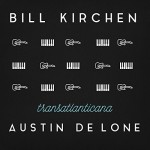
JM: It does seem you’re keeping pretty busy already.
BK: I’m busy. I can’t work harder, I’ve got to work smarter. I have a first-world problem – too much work. I have no complaints. Right now, for instance, I’m looking out the window of my hotel on a little peninsula on the west side of the Puget Sound. I went hiking the day before yesterday, and went to the National Park up there at the Hurricane Ridge. I’ve got things pretty nice. Canada before that, so I’ve got no complaints.
JM: Yeah, you’re doing something right.
BK: I guess so. Or least I’m not stepping on my own toes too much.

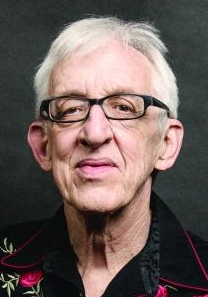
Discussion
No comments for “Interview: Bill Kirchen”